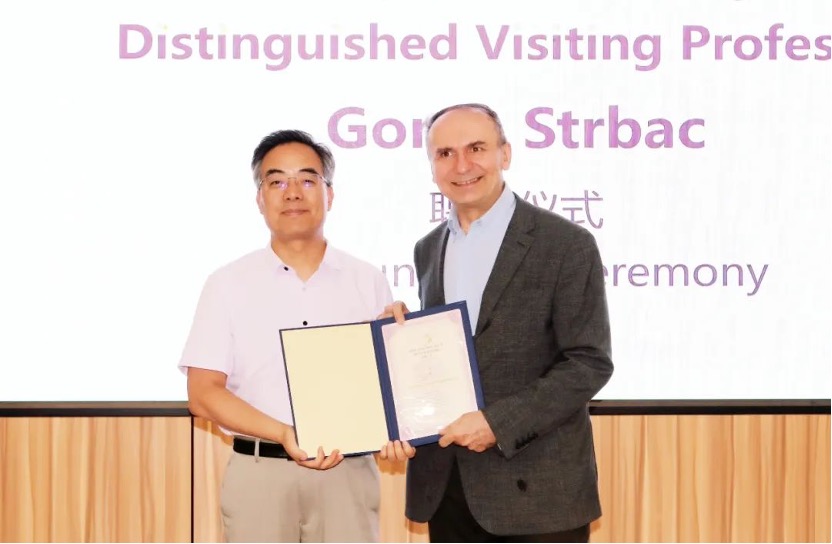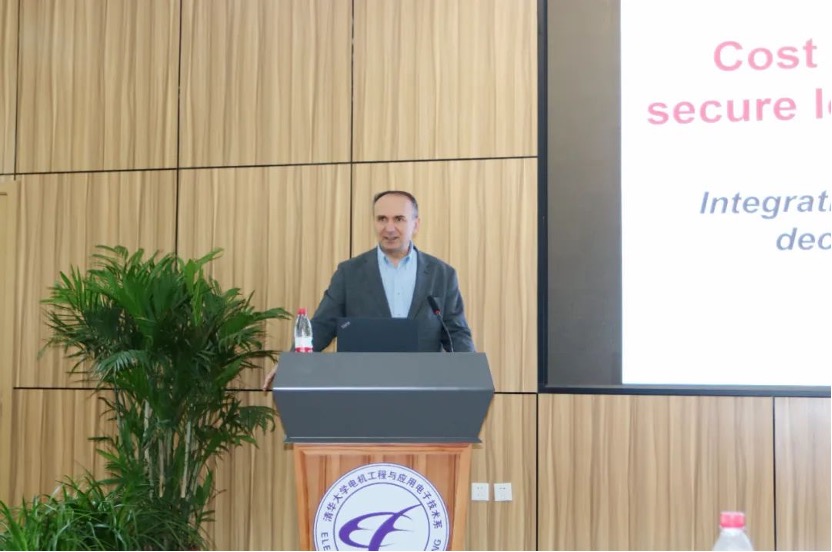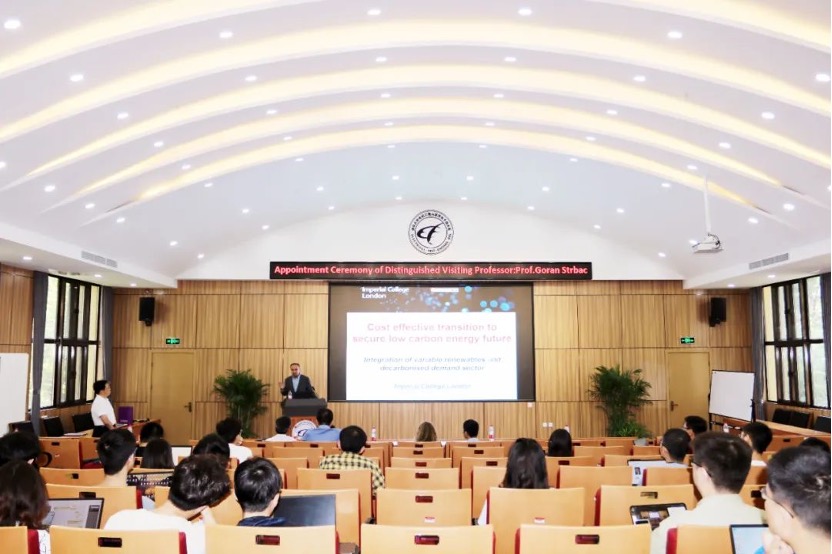On June 16, 2023, Professor Goran Strbac of Imperial College London gave a lecture on his research topics at the Department of Electrical Engineering of Tsinghua University. A ceremony was also held where Professor Strbac was presented a letter of appointment as a Distinguished Visiting Professor of Tsinghua University and Expert Member of the International Think Tank of the Energy Internet Research Institute by Professor Kang Chongqing, the Chair of the Department of Electrical Engineering and the Director of the Energy Internet Research Institute of Tsinghua University. More than 60 faculty members and students attended the event, including Assistant Chair Sun Kai, Associate Professor Zhang Ning, Gao Wensheng, Executive Vice Director of the Institute, Dai Jing, Deputy Chair of the Energy Governance Research Center of the Institute, and Gu Yunjie, lecturer of Imperial College London.

Professor Goran Strbac presented the lecture on his research topics following the ceremony, which was moderated by Sun Kai, Assistant Chair of the Department of Electrical Engineering. The lecture is on Cost-effective Transition to a Secure Low-carbon Energy System. Professor Goran Strbac gave a systematic overview of the major challenges to power grid systems that have arisen from the large-scale integration of renewable energy and new models of loads, and proposed solutions for a smart, low-carbon and cost-effective transformation of the electrical energy system through various measures, such as adjusting the grid frequency standards, developing flexible resources, optimizing the grid structure, integrating multiple energy sources, utilizing hydrogen energy on a large scale, and improving the system resilience with multi-energy micro-grids. After the lecture, faculty members and students of the Department of Electrical Engineering engaged in a heated discussion with Professor Strbac, and exchanged views on topics such as the revision of frequency standards in future power grid systems, the role of energy storage, and the application of artificial intelligence.

Professor Kang Chongqing presents Professor Goran Strbac with the letter of appointment as an Expert Member of the International Think Tank of the Energy Internet Research Institute of Tsinghua University

Professor Goran Strbac delivering an academic lecture

Professor Goran Strbac’s academic lecture
Professor Goran Strbac, a world-renowned scholar in the field of electric power, is currently a professor of Energy Systems and Chair in Electrical Energy Systems at the Imperial College London. He obtained his MSc and PhD degrees in Electrical Engineering from the University of Belgrade in 1989 and 1994, respectively, and was a Professor of Electrical Engineering at the University of Manchester in the UK before joining Imperial College London in 2005. His research interests include operation and investment optimization of low-carbon energy systems, energy infrastructure reliability, and emerging energy markets. He has led the research and development of innovative analysis approaches and methodologies for energy system integration for over 20 years, covering electricity, transport, gas and heat networks. His research results have been extensively used by governments, regulatory bodies and the energy industry, providing an important cost-benefit assessment baseline for cost-effective evolution to a smart low-carbon energy future. Professor Strbac is the author of five books and over 300 papers. He is currently a UK Member of CIGRE, a Leading Author in IPCC Working Group III, a member of the Joint EU Programme in Energy Systems Integration of the European Energy Research Alliance (EERA) and a member of the Policy Science Advisory Working Group of the European Academy of Sciences, responsible for drafting the report “A Systematic Approach to Energy Transition in Europe”. He co-founded the Imperial-Tsinghua Research Centre on Intelligent Power and Energy Systems with Professor Kang Chongqing and served as the UK Director of the Center. In the first phase of collaboration (2019-2022), the two parties accomplished through collaboration two international cooperation projects, organized multiple international conferences and special forums, as well as visits of delegations from both sides and jointly published more than 10 papers, marking an exceptional success of cooperation.